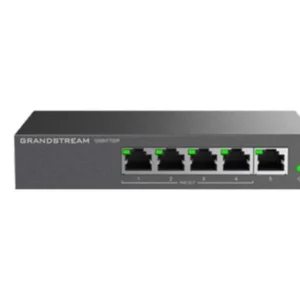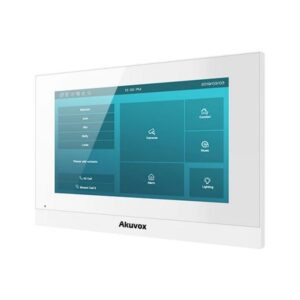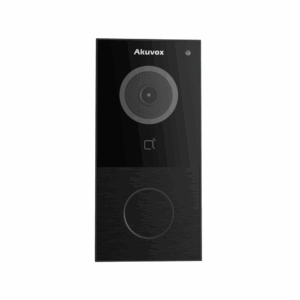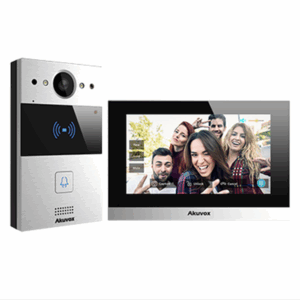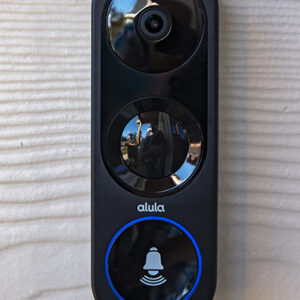Intercom systems have evolved significantly over the years, transitioning from simple voice communication devices to sophisticated security and home automation solutions. As homeowners and businesses in Australia continue to embrace advanced technology, the choice between wireless and wired intercom systems has become a critical decision. Both options come with their own set of advantages and disadvantages, and the right choice depends on various factors, including the specific needs of the user, the environment, and budget considerations.
In this article, we’ll delve into the key differences between wireless and wired intercom systems, their pros and cons, and provide guidance on making the right choice for your situation.
Table of Contents
ToggleWhat is an Intercom System?
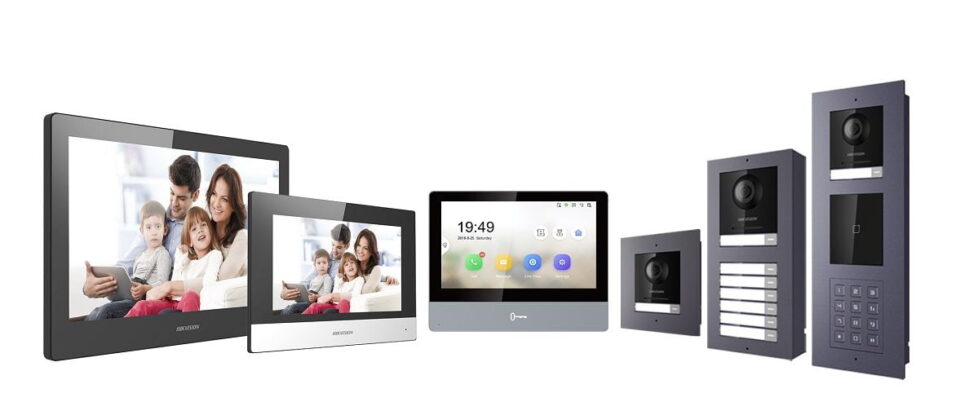
Before diving into the comparison between wireless and wired intercom systems, it’s important to understand the basic concept of intercom systems and how they function.
An intercom system is a stand-alone voice communication system that is used within a building or a group of buildings. It allows for two-way communication and is commonly used for security, communication, and convenience purposes. Intercom systems can include a variety of components such as microphones, speakers, cameras, and displays, enabling both audio and video communication.
Wired Intercom Systems
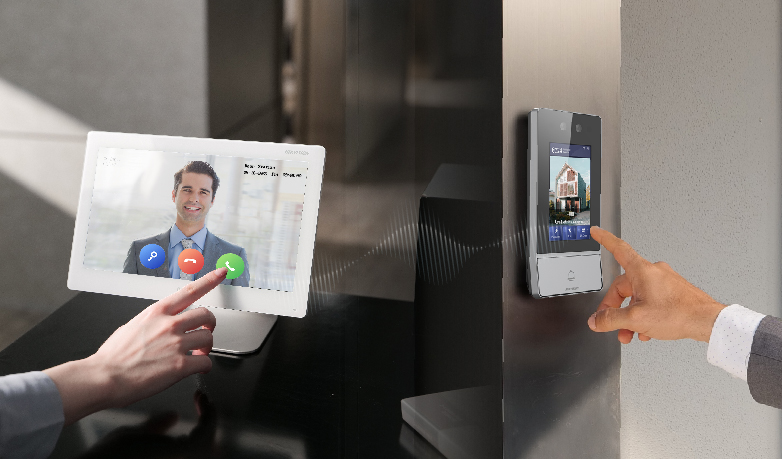
How Wired Intercom Systems Work
Wired intercom systems rely on physical cabling to connect the different components of the system. The cables are typically run through walls, ceilings, or underground conduits to connect the central control unit to the intercom stations located throughout the building. The most common types of cables used in wired intercom systems include CAT5, CAT6, and coaxial cables.
Advantages of Wired Intercom Systems
- Reliability: One of the key advantages of wired intercom systems is their reliability. Since the communication signals are transmitted through physical cables, there is little to no interference or signal degradation, ensuring clear and consistent communication.
- Security: Wired intercom systems offer a higher level of security compared to their wireless counterparts. Since the signals are transmitted through cables, they are less susceptible to hacking or unauthorized access.
- Stable Power Supply: Wired intercom systems are usually powered by the building’s electrical system, which means there is no need to worry about battery life or recharging.
- High-Quality Audio and Video: Due to the direct connection provided by the cables, wired intercom systems often deliver superior audio and video quality, making them ideal for applications where clarity is crucial.
- Durability: Wired systems are generally more durable and can withstand harsh environmental conditions better than wireless systems. They are less likely to be affected by weather, physical damage, or other external factors.
Disadvantages of Wired Intercom Systems
- Installation Complexity: Installing a wired intercom system can be a complex and time-consuming process. It typically requires professional installation, which can involve drilling holes, running cables through walls, and making electrical connections. This can be particularly challenging in existing buildings where retrofitting is required.
- Cost: The cost of a wired intercom system can be higher than that of a wireless system due to the materials, labor, and time involved in installation. Additionally, if the system needs to be expanded or upgraded in the future, additional costs may be incurred.
- Limited Flexibility: Once a wired intercom system is installed, it is difficult to change the location of the intercom stations or add new ones without significant work. This can be a limitation in dynamic environments where changes may be necessary.
- Maintenance: While wired systems are generally durable, they do require maintenance over time. Cables can degrade, connections can become loose, and components may need to be replaced, all of which require access to the physical infrastructure.
Wireless Intercom Systems
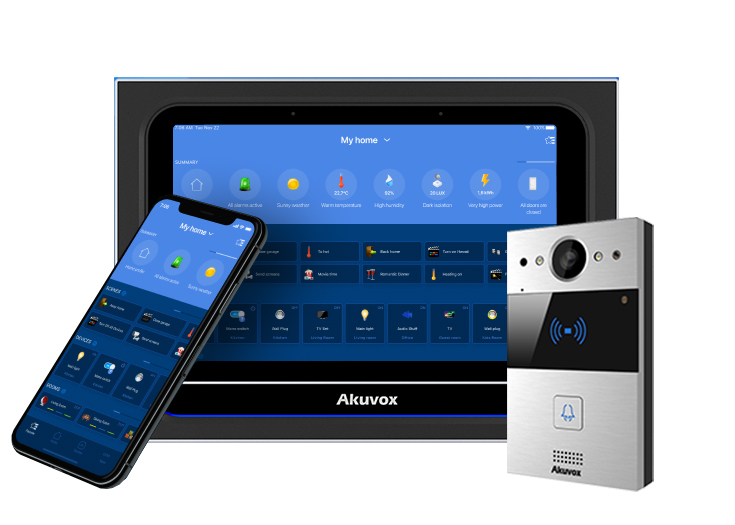
How Wireless Intercom Systems Work
Wireless intercom systems utilize radio frequencies (RF), Wi-Fi, or Bluetooth to transmit communication signals between the intercom stations and the central control unit. These systems do not require physical cabling, making them a more flexible option for many users.
Advantages of Wireless Intercom Systems
- Ease of Installation: Wireless intercom systems are much easier to install compared to wired systems. Since there is no need to run cables, the installation process is quick and can often be completed by the user without the need for professional assistance.
- Flexibility: Wireless systems offer greater flexibility in terms of placement and expansion. Intercom stations can be easily moved or added without the need for extensive modifications. This makes wireless systems ideal for dynamic environments where mobility and adaptability are important.
- Cost-Effective: In many cases, wireless intercom systems are more cost-effective than wired systems. The absence of cabling and the reduced need for professional installation can result in significant savings.
- Modern Features: Wireless intercom systems often come with modern features such as smartphone integration, remote access, and cloud storage. These features enhance the convenience and functionality of the system, making it more appealing to tech-savvy users.
- Scalability: Wireless systems are generally easier to scale than wired systems. Additional intercom stations or components can be added to the system without major disruptions or costs, making it a suitable option for growing businesses or expanding homes.
Disadvantages of Wireless Intercom Systems
- Signal Interference: Wireless intercom systems are susceptible to signal interference from other electronic devices, Wi-Fi networks, or physical obstructions such as walls and metal structures. This can result in reduced audio and video quality, as well as occasional communication dropouts.
- Security Concerns: While wireless systems offer convenience, they are also more vulnerable to hacking and unauthorized access. Without proper encryption and security measures, wireless signals can be intercepted, compromising the security of the system.
- Battery Dependence: Many wireless intercom systems rely on batteries for power, which means they require regular recharging or battery replacement. In some cases, this can be inconvenient, especially in environments where continuous operation is critical.
- Range Limitations: Wireless intercom systems have a limited range, which can be affected by the presence of walls, floors, and other obstacles. In large buildings or outdoor areas, the range may not be sufficient to cover the entire area, requiring additional devices or repeaters to extend coverage.
- Potential for Latency: Depending on the technology used, some wireless intercom systems may experience latency or delays in communication, particularly in high-traffic environments or during peak usage times.
Key Factors to Consider When Choosing Between Wireless and Wired Intercom Systems
When deciding between a wireless or wired intercom system, several key factors should be considered to ensure the right choice is made for your specific needs.
1. Environment and Building Structure
- Wired Intercom: If the building is under construction or undergoing significant renovation, a wired intercom system may be the better choice. The infrastructure can be easily incorporated into the design, and the installation process will be less disruptive.
- Wireless Intercom: For existing buildings, especially those with complex structures or historical significance, a wireless intercom system may be more practical. It eliminates the need for invasive installation work, preserving the integrity of the building.
2. Security Requirements
- Wired Intercom: If security is a top priority, such as in high-risk environments or sensitive locations, a wired intercom system offers superior protection against tampering and unauthorized access.
- Wireless Intercom: For residential settings or areas where convenience outweighs security concerns, a wireless intercom system may be sufficient, provided that proper encryption and security protocols are in place.
3. Budget Considerations
- Wired Intercom: While the initial cost of a wired intercom system may be higher due to installation and materials, it can be a cost-effective long-term investment, particularly in stable environments where changes are unlikely.
- Wireless Intercom: For those with a limited budget or who need a quick, affordable solution, a wireless intercom system may be the better option. The lower upfront cost and ease of installation can make it an attractive choice.
4. Flexibility and Scalability
- Wired Intercom: If the system is intended for a static environment with little need for future changes, a wired intercom system may provide the stability and reliability needed.
- Wireless Intercom: For environments that are likely to change, expand, or require mobility, a wireless intercom system offers the flexibility to adapt and scale with minimal disruption.
5. Audio and Video Quality
- Wired Intercom: If high-quality audio and video communication are critical, such as in professional or security-sensitive environments, a wired intercom system is likely to provide the best performance.
- Wireless Intercom: For general communication purposes, where slight variations in quality are acceptable, a wireless intercom system may suffice.
6. Maintenance and Longevity
- Wired Intercom: Consider the long-term maintenance and potential repair costs of a wired intercom system. While generally durable, any issues that do arise may require more effort and expense to address.
- Wireless Intercom: While wireless systems may require more frequent maintenance due to battery replacements or software updates, they offer the advantage of easier access and simpler troubleshooting.
Are Intercoms Hard-Wired?
Yes, wired intercom systems are hard-wired, meaning they require physical cables to connect each intercom station. This hard-wired setup creates a closed circuit, making the system more secure and reliable compared to wireless alternatives. The hard-wired design reduces vulnerability to intrusions and interference from other radio transmitters, ensuring a secure communication line.
However, the installation process can be challenging and potentially expensive, particularly if it wasn’t accounted for during the property’s initial construction. Installing a wired system typically involves running cables through walls and ceilings, which can be labor-intensive.
How Many Wires Are Needed for an Intercom System?
The number of wires required for a wired intercom system depends on the specific needs of the system, including the number of intercom stations and the features offered. Typically, a basic wired intercom system requires at least two wires to connect the stations.
However, more advanced systems with features such as video capabilities or integration with other security systems may need additional wiring to support these functionalities. It is advisable to consult with a professional installer to determine the precise wiring requirements for your specific intercom setup. Additionally, seeking advice on choosing the best CCTV system to complement your intercom setup might be beneficial.
Read more: Two-Way Intercom Systems: Features and TechnologiesConclusion: Making the Right Choice
The decision between a wireless and wired intercom system ultimately comes down to a careful consideration of the specific needs, environment, and priorities of the user. Both options offer distinct advantages and disadvantages, and the right choice will depend on the balance of factors such as reliability, security, cost, flexibility, and quality.
For those seeking a highly reliable, secure, and high-quality communication system with minimal interference, a wired intercom system may
-
Grandstream Unmanaged Network Switch – GR-GWN7700P
$70.91 (ex. GST)Please login to see trade price
Add to cart -
Akuvox Indoor Monitor – AK-C313W-WHITE
$207.18 (ex. GST)Please login to see trade price
Add to cart -
Akuvox Video Doorbell E12S Powerful Secure Features
$222.73 (ex. GST)Please login to see trade price
Add to cart -
-
-

